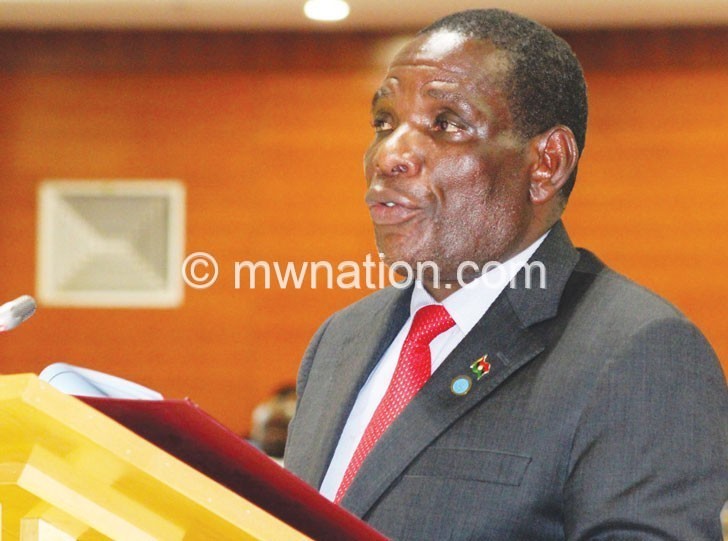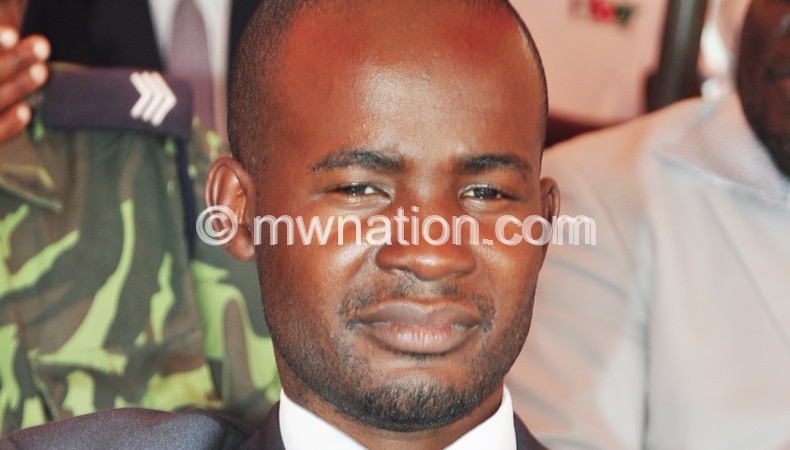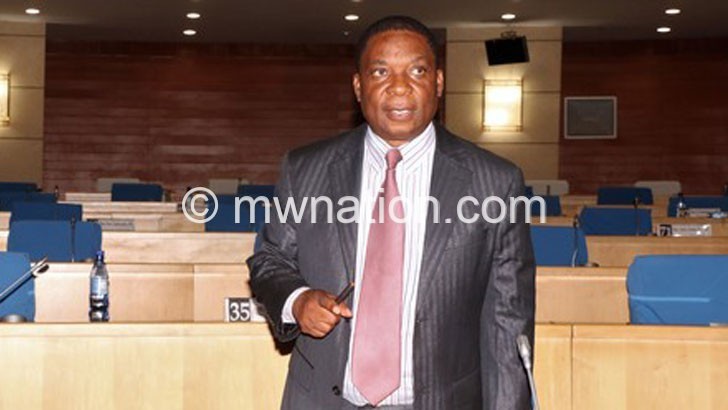MPs frown at budget
- Describe K511bn provisional budget unrealistic
Some legislators on Friday challenged new Minister of Finance, Economic Planning and Development Joseph Mwanamvekha to justify what they described as unrealistic assumptions in the K511.3 billion provisional budget he presented. But the House later approved the budget.

Among other things, the members of Parliament (MPs) questioned the minister’s assumptions to reduce domestic debt from the current 4.1 percent of Gross Domestic Product (GDP) to 0.3 percent and his projections on the exchange rate with the dollar which is currently at K760 to an average of K750, which the legislators said were unrealistic.
Mwanamvekha presented the interim budget pursuant to Section 178 of the Constitution and after a resolution for the National Assembly to approve and authorise him to withdraw from the Consolidated Fund an amount not exceeding K511 269 522 794 for the purpose of meeting expenditure necessary to carry on services of government from July 1 2019 to October 31 2019.

The interim budget for four months is about 36 percent of the 2018/19 revised fiscal plan of K1.429 trillion, which expires tomorrow. The budget, initially pegged at K1.454 trillion, was revised downwards on account of non-disbursement of budget support by the World Bank, among other factors.
Presenting the budget, Mwanamvekha said exchange rate is expected to average K750 to the dollar and that government will reduce domestic borrowing from 4.1 percent of GDP to 0.3 percent between July and October 2019.
Inflation rate, the minister said, is also expected to average eight percent during this period under, adding that only ongoing projects will be provided for in the provisional budget.
“Provisions for new projects will be made in the main budget and all contractual obligations which fall due within the four months under consideration have been provided for,” said Mwanamvekha.

In instant reactions to the budget, some MPs expressed scepticism, especially over the underlying assumptions of the budget, describing some of them as “unrealistic and overly ambitious”.
“The minister aims to cut domestic debt from 4.1 percent of GDP to 0.3 percent. How does he intend to achieve this?” questioned MP for Lilongwe Msozi North Sosten Gwengwe, who is also Malawi Congress Party (MCP spokesperson on finance in Parliament.
He said Malawi’s public debt stock, estimated at around K3 trillion, is currently not under control and is unsustainable.
Gwengwe said: “We have taken these loans willy-nilly. Instead of giving pay rises to our civil servants, we are busy paying companies huge sums of money in form of interest payments.”

Earlier this week, the World Bank also lamented over huge accumulation of debt stock, which it says largely stems from recurring fiscal deficits as government continues to overspend above what it collects in terms of government revenue.
Mzimba North Alliance for Democracy (Aford) MP Yeremiah Chihana also wondered why Mwanamvekha is projecting that exchange rate will average K750 to a dollar when on the market the kwacha is already trading at K817 to a dollar, adding that it is clear that the economy is ‘bleeding’.
He said: “Reducing borrowing to 0.3 percent is not realistic. It is my hope that this is not just mere rhetoric…the situation on the ground shows that Malawians are economic refugees in their own country.”
Taking his turn, Rumphi East lawmaker Kamlepo Kalua (People’s Party) also questioned the 4.1 percent of GDP domestic borrowing figure that Mwanamvekha mentioned in the provisional budget. According to Kalua, domestic borrowing as a percentage of GDP stands at 5.8 percent and not 4.1 as the minister said.
A latest World Bank Malawi Economic Monitor (MEM), launched in Lilongwe on Tuesday vindicates Kalua as it says net domestic borrowing has been revised upwards to 6 percent of GDP—from the previously estimated level of 4.7 percent.
Karonga Central MP Cornelius Mwalwanda (MCP), who once served as deputy Finance minister in Bingu wa Mutharika’s administration, also doubted the average exchange of K750 to a dollar assumption, underpinning the provisional budget as well as the K50.7 billion grants that Treasury expects to receive from development partners during the period under review.
“With the current situation, it won’t be easy to receive such an amount of grants,” said Mwalwanda.
The provisional budget has revenue and grants amounting to K461.2 billion, of which K410.5 billion is domestic revenues and K50.7 billion are grants.
Reacting to the concerns later, Mwanamvekha said the provisional budget has a net domestic borrowing of K16.5 billion, which he said is lower than the K84.3 billion for the same period in the 2018/2019 budget.
On debt stock, the minister insisted that as far as Treasury is concerned, domestic debt as a percentage of GDP stands at 4.1 percent.
On exchange rate, Mwanamvekha, while hoisting a copy of The Nation, defended the assertion by Chihana that the kwacha is already showing signs of appreciation against the United States dollar.
“Check in today’s newspaper, the buying rate is K760 while the selling rate is K770. We should be able to have an exchange rate of K750 soon and we are moving towards that. Tobacco dollars will help us stabilise. Already, $100 million (about K77 billion) has been realised from tobacco sales. The kwacha will soon remain stable,” said the minister.
In the budget, wages and salaries are projected at K135 billion, representing 34 percent of the 2018/2019 fiscal plan. Development expenditure has a total provision of K116.5 billion of which K98.7 billion is foreign financed while K17.9 billion is domestically financed.





